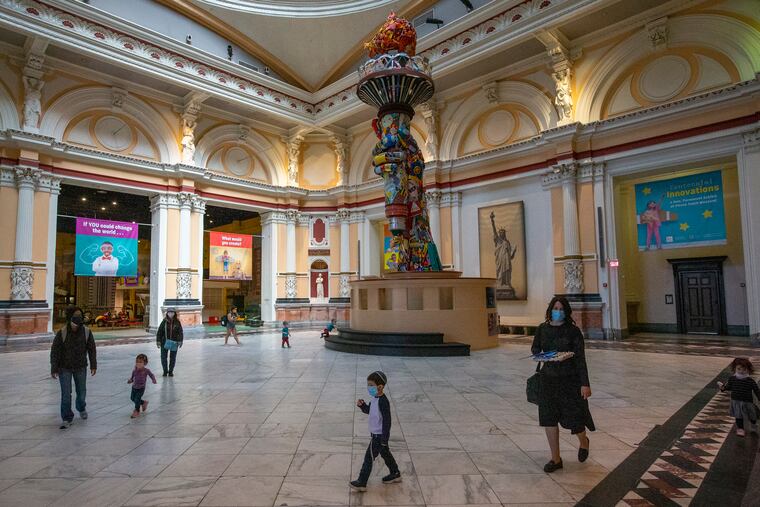Letters to the Editor | Oct. 29, 2023
Inquirer readers on the Children’s Mayoral Conversation at the Please Touch Museum and lessons from Palestinian history.

Young voices
Children’s questions for political candidates are not traditionally elevated during the campaign cycle, but after the Please Touch Museum’s recent Children’s Mayoral Conversation, I would argue they should be. For two hours, in historic Hamilton Hall, second, third, and fourth-grade students from Inquiry Charter School, Morton McMichael School, and St. Rose of Lima School asked mayoral candidates Cherelle Parker and David Oh the pressing questions that mattered to them most.
“What will you do to open the libraries, and make the playgrounds safe for us?” “What are you going to do to stop violence, make our neighborhood safer, and pick up the trash?” “If you could change anything in Philadelphia, what would it be?” In my view, these questions — and the resulting conversation between the two mayoral candidates and their young constituents — were the most important conversation in this election cycle.
These queries reminded all the grown-ups in the room that our children see the problems facing our city. They feel the nervous energy of caregivers who worry about them walking to school. They want clean neighborhoods and safe playgrounds to gather with their friends. They want Philadelphians to help each other and love one another.
The children’s questions were also an important reminder of our responsibility as adults, with both a voice and a vote, to make Philadelphia better — for them. On Nov. 7, the children of Philadelphia are counting on the grown-ups to vote for their future. We need to help our children’s voices be heard and remind our newly elected officials that their primary job is to create a better Philadelphia for our children — who are their number one constituents.
Patricia D. Wellenbach, president and CEO, Please Touch Museum
Critical thinking
Growing up during the Cold War and identifying as a Polish American (when that was still a capital-letter segment of American society), I recognized that criticism of Poland was not criticism of the Polish people. In contrast, the seemingly widespread protests abroad during the Vietnam War against the policies of the United States were often characterized by the American media and by some politicians as anti-American. This adjective sometimes was applied to demonstrations against the American government that were conducted by Americans on American soil.
Calling demonstrators anti-American allowed people to both discount the anger and the political or moral arguments that led protesters to reject the policies of their government. Today, if we are looking for a more stable and peaceful Holy Land, we need to agree that criticizing Hamas is not being anti-Palestinian and that criticizing the policies of Israel is not being anti-Israeli, nor in a broader sense anti-Jewish. Until both parties in this conflict acknowledge and understand the positions of the other, there is little hope of working out an equitable solution. An imposed peace without equity would be ephemeral, merely a pause in hostilities.
Hank Bienkowski, Downingtown
Join the conversation: Send letters to letters@inquirer.com. Limit length to 150 words and include home address and day and evening phone number. Letters run in The Inquirer six days a week on the editorial page and online.